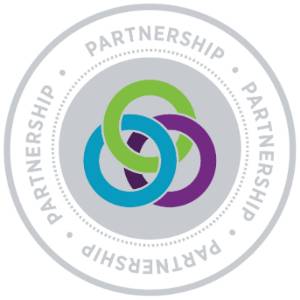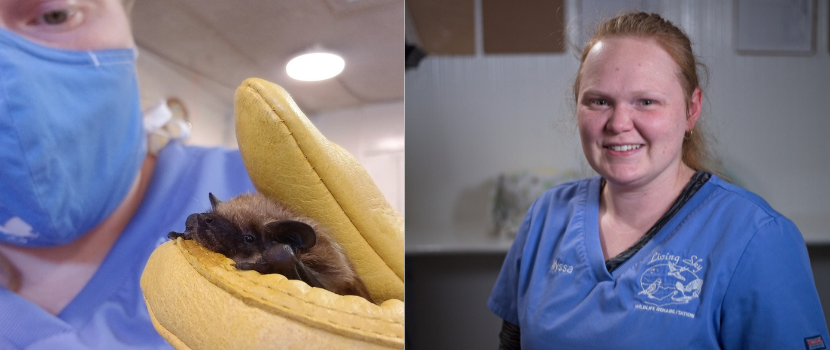
Volunteering at Living Sky Wildlife Rehabilitation led Alyssa Daku to a career caring for injured and orphaned wild animals and bringing attention to the cause through the TV program Staying Wild, filmed in Saskatoon.
“Animals would come to the centre in critical condition, and I wanted to do more for them. Through volunteering, I realized I wanted to do animal care, so a career as a vet tech seemed like a really good fit,” she says. “The program at Sask Polytech had hands-on learning. That's exactly how I learn, so I was happy to enrol in the Veterinary Technology program.”
When she started volunteering in 2019, she didn’t expect to become a featured cast member in a TV show broadcast across Canada and the USA. In 2022, a film crew went behind the scenes at LSWR to film a pilot episode. Daku remembers the beginning of Staying Wild and the changes it meant for employees.
“All our staff were nervous about having to talk on camera. It was an adjustment, but we get to talk about subjects we’re passionate about so it's actually really nice,” she says.
Throughout the three seasons which have aired, audiences catch a glimpse of the activity at the facility which rehabs birds and small mammals. They treat up to 2,500 animals a year, Daku says. By offering veterinary care and rehabilitation, the staff help animals return to the wild.
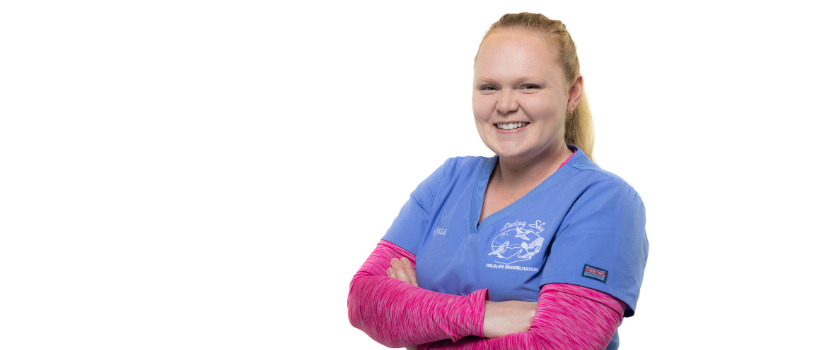
Feeding medications, administering oral fluids and providing medical care are essential for the animals’ well-being, and she says the TV crew does an excellent job at keeping them in mind.
“The animals are at the center of the care. They're not pets. They're not used to the cameras,” Daku says. “The film crew is really respectful. If it's getting to be too much for the animals, we mention it’s not a good time and they restart the interview at another time.”
Daku had the chance to experience a pivotal moment at LSWR when they took in over 600 big brown bats from Unity in February 2021. The colony was discovered when the community renovated its rink. The protected species needed shelter to hibernate until the bats could be released in the spring. Daku says the flying mammals became her favourite animals to care for.
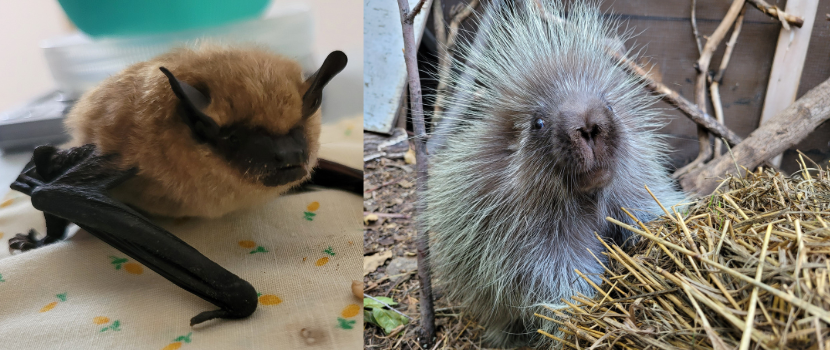
“I spent months of volunteer hours just going in and feeding the bats every day. I learned that they're all very unique. They have little personalities. And I mean, after 1,000 hours, how can you not like them?” she says.
In addition to caring for bats, the LSWR team have worked with songbirds, an owl, a blue heron, flying squirrels and baby porcupines among others. Daku says the objective, no matter the animal, always stays the same.
“The goal is to rehab them and return them to nature. It’s hard to know if anyone has crossed paths with them again, but sometimes we do get updates,” she says.
She explains that all birds treated at LSWR get a silver band on their legs, and they occasionally get the number reported back. That was the case for a merlin they raised in 2023.
“A couple of weeks after we released her, we got a picture from Montana. She was sitting in the field, so she made it. She was quite sassy, so I'm not surprised,” Daku says. “It’s nice to see we’re making a difference.”
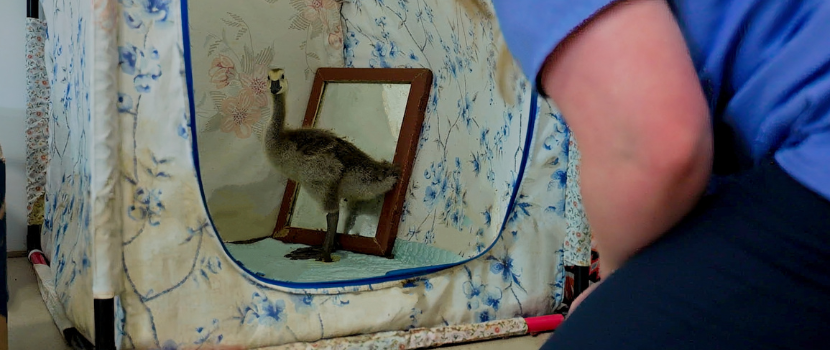
Daku is eager to continue to hear success stories, as her career moves forward. A graduate of the class of 2025, Daku joined the ranks as a full-time staff member of LSWR. As a non-profit organization, she hopes Staying Wild will continue to raise awareness.
“Every year we get more and more intakes and that, I believe, is because more people know that we’re here to answer questions and offer support and care,” Daku says.
"The more people who know about us, the better because we operate by donation. The public’s generosity helps us help more animals, and we’re always looking for people to volunteer.”
Veterinary technologist skills are in demand to care for animals at veterinary clinics and animal hospitals, livestock operations, animal shelters, diagnostic labs, research facilities, zoos and game farms. Learn more about Sask Polytech’s vet tech program.
Living Sky Wildlife Rehabilitation was established in 2010. For more information visit livingskywildliferehabilitation.org.
Staying Wild is broadcast on CityTV in Canada and on Nat Geo as Wildlife Rehab for audiences in the USA.
Saskatchewan Polytechnic is signatory to the SDG Accord. Sustainable Development Goal alignment is one of the ways Sask Polytech is leading the rise of polytechnic education.
